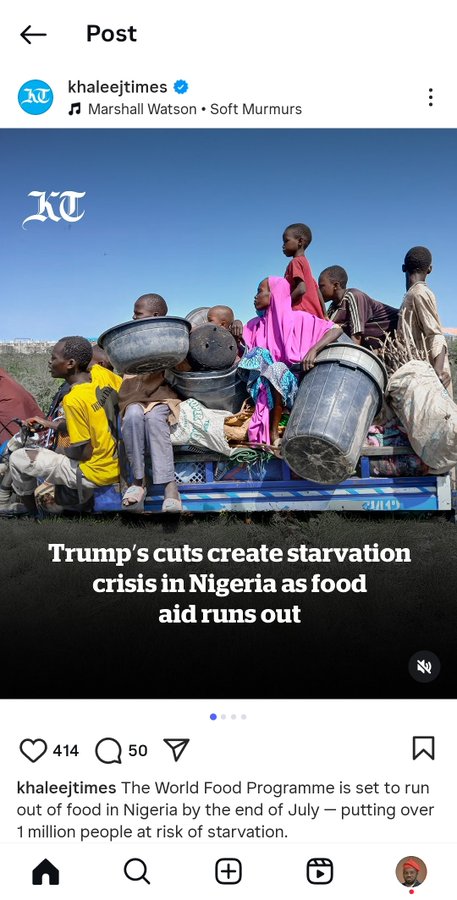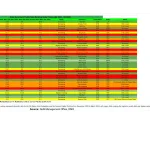
Khaleej Times Report on “Starvation Crisis in Nigeria” Misleads Readers, Links Trump’s Aid Cuts to Unrelated Flood, Hunger

A recent report by the Khaleej Times claiming that Trump’s aid cuts have triggered a “starvation crisis in Nigeria” is inaccurate and misleading.
In its coverage, the Dubai-based newspaper links U.S. funding cuts to hunger in Nigeria and uses an image of a 2023 flood in Maiduguri, caused by a burst dam, to reinforce its point. However, there is no evidence connecting U.S. foreign aid decisions to either a national famine or the localised flooding incident referenced.
On September 10, 2024, the Alau Dam in Maiduguri burst after days of heavy rainfall, submerging nearly half the city and displacing over 400,000 people, according to the National Emergency Management Agency (NEMA).
This disaster was the result of years of government neglect and lack of investment in infrastructure, not foreign aid policy. The attempt to tie this flooding to American aid cuts is misleading and unsupported by any credible facts.
Nigeria’s food insecurity stems from internal crises, not from withheld foreign funds that neither reached nor directly benefited local populations.
West Africa Weekly has previously reported that across Nigeria’s Middle Belt, including Benue, Plateau, and Nasarawa, widespread insecurity, violent attacks, and unchecked open grazing have displaced millions and devastated agricultural output.
In Benue State, known as the country’s “food basket,” thousands of farmers have been driven off their land by armed herdsmen. Farms have been burned, harvests lost, and entire communities forced into internally displaced persons (IDP) camps.
The ongoing collapse of food production in these regions is fueled by years of policy failure, government silence in the face of violence, and the abandonment of rural communities that form the backbone of domestic food production.
Increasing inflation, due to the government’s disastrous policies, has made things worse. In June 2024, the National Bureau of Statistics reported food prices had surged by 40.9 per cent.
Yet, the Khaleej Times narrative conveniently overlooks these domestic drivers and instead draws a sensational link to American politics, thereby shifting attention away from the local solutions that are urgently needed.
Read More:
- From Q4 2023 to Q1 2025: Lagos State Tops Domestic Debt Chart with ₦874bn, as Jigawa Shrinks to ₦1bn
- Ghana: Mahama launches ‘No Fees Stress’ policy, Clears Fees for First 15,000 Tertiary Students
About The Author
Related Articles
Asake Sets New Billboard Afrobeats Record as Chart Presence Grows
Asake has further cemented his place as one of Afrobeats’ most dominant...
ByWest Africa WeeklyJanuary 29, 2026Nigerians Lament PayPal’s Return as Old Wounds Resurface
PayPal’s reentry into Nigeria through a partnership with local fintech company Paga...
ByWest Africa WeeklyJanuary 29, 2026Tanzania Eyes Gold Sales as Aid Declines and Infrastructure Needs Grow
Tanzania is weighing plans to sell part of its gold reserves to...
ByWest Africa WeeklyJanuary 29, 2026Mali Tightens Grip on Explosives Supply With New Majority Stake
The Malian government has taken majority ownership of a civil explosives manufacturing...
ByWest Africa WeeklyJanuary 29, 2026












Leave a comment